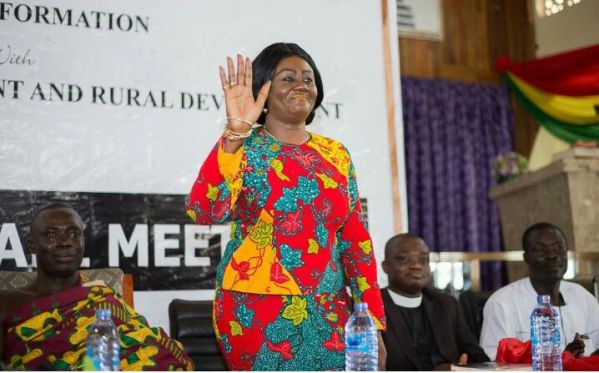
‘Empower women to play greater role in mining sector’
The Deputy Minister of Lands and Natural Resources, Mrs Barbara Oteng-Gyasi, has called on mining companies to empower and help develop women to take up higher positions in the sector in order to attain better gender equality in that area.
Mrs Oteng-Gyasi, who was speaking at a workshop on the country’s mining regulatory landscape in Accra, noted that: “The challenges which inhibited women’s participation in the mining sector were due to factors such as education, training and skills, access to finance and the lack of role models.”
The workshop was organised by the Canadian High Commission and Women in Mining, Ghana.
She also identified socio-cultural barriers such as superstition and access to land as inhibiting women’s involvement in the mining sector, adding that if those obstacles were removed, women would have the confidence to participate fully in that sector.
“Women in the industry feel they are not taken seriously or not perceived as having quality technical and scientific insight.
I believe these challenges can be overcome with conscious efforts by all stakeholders,” she added.
Mrs Oteng-Gyasi stressed that Ghana’s abundant mineral resources ensured potential wealth creation opportunities for socio-economic development, noting that if women were not allowed to actively participate in the entire mining value chain, improving the sustainability of minerals exploitation would be difficult.
She pointed out that the country’s regulatory framework was gender neutral, while the strategy and policy direction of the government was aimed at ensuring fully inclusive and long-term benefits from mining for both men and women.
Policies
The deputy minister said the government was committed to working with stakeholders to remove the barriers that hindered participation in the mining industry and noted that the 1992 Constitution, the Minerals and Mining Act, 2006, (Act 703) and other regulations provided the general framework of laws to guide the participation of both men and women in the exploitation of the country’s resources.
“Further, the Minerals and Mining Policy launched in 2014, as well as current government policy initiatives for the sector, have objectives to integrate mining with the rest of the economy to benefit both men and women,” she added.
She said within a broader policy framework, the government would ensure the sustainable extraction of mineral resources, in line with which the monitoring of mining activities would be intensified to ensure operational and environmental compliance.
She added that the government would also provide infrastructural and financial support to tertiary institutions that offered training in mining in a bid to expand access and opportunities for more women in those institutions.
STEM programme
A former Chief Executive Officer of the Ghana Chamber of Mines, Rev. Dr Joyce Aryee, who also addressed the workshop participants, observed that the mining industry had the potential to be the key driver of economic growth, job creation and sustainable development.
She, therefore, appealed to mining companies to support girls in the Science, Technology, Engineering and Mathematics (STEM) programme to encourage more women to enter the mining industry.
The Canadian High Commissioner in Accra, Ms Heather Cameron, said studies indicated that economic growth was consistently higher and countries were more prosperous when women were actively involved in the economy.
